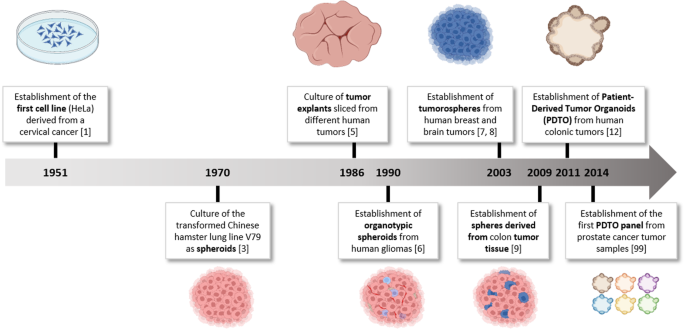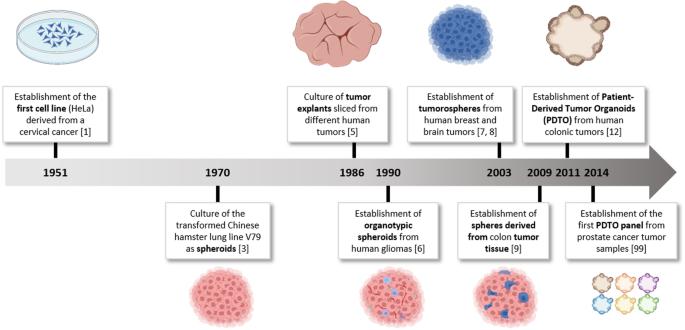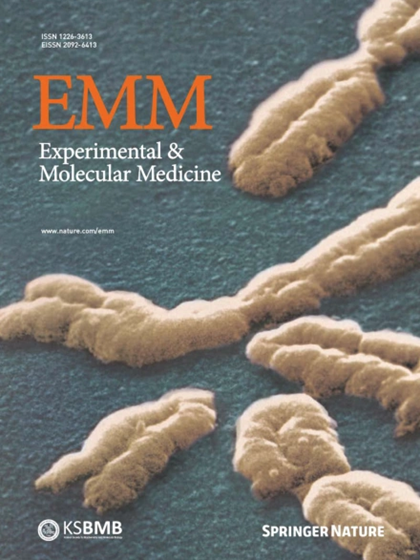Patient-derived tumor organoids: a new avenue for preclinical research and precision medicine in oncology
IF 9.5
2区 医学
Q1 BIOCHEMISTRY & MOLECULAR BIOLOGY
引用次数: 0
Abstract
Over the past decade, the emergence of patient-derived tumor organoids (PDTOs) has broadened the repertoire of preclinical models and progressively revolutionized three-dimensional cell culture in oncology. PDTO can be grown from patient tumor samples with high efficiency and faithfully recapitulates the histological and molecular characteristics of the original tumor. Therefore, PDTOs can serve as invaluable tools in oncology research, and their translation to clinical practice is exciting for the future of precision medicine in oncology. In this review, we provide an overview of methods for establishing PDTOs and their various applications in cancer research, starting with basic research and ending with the identification of new targets and preclinical validation of new anticancer compounds and precision medicine. Finally, we highlight the challenges associated with the clinical implementation of PDTO, such as its representativeness, success rate, assay speed, and lack of a tumor microenvironment. Technological developments and autologous cocultures of PDTOs and stromal cells are currently ongoing to meet these challenges and optimally exploit the full potential of these models. The use of PDTOs as standard tools in clinical oncology could lead to a new era of precision oncology in the coming decade. The shift from 2D to 3D cell cultures has greatly improved cancer research, providing a more realistic model of tumors. Patient-Derived Tumor Organoids (PDTOs) have become a key tool in cancer research, allowing scientists to grow efficiently tumor cells from patient samples in a 3D environment that closely mirrors the original tumor. PDTOs are a major step forward in cancer research, bridging the gap between traditional cell cultures and clinical realities, with the potential for successful clinical applications despite some challenges that could be overcome by technological developments. Thus, they offer a promising platform for understanding cancer, testing drug responses, and developing personalized treatments, with the potential to greatly impact future patient care. This summary was initially drafted using artificial intelligence, then revised and fact-checked by the author.


源自患者的肿瘤器官组织:肿瘤学临床前研究和精准医疗的新途径。
在过去十年中,患者来源肿瘤器官组织(PDTO)的出现拓宽了临床前模型的范围,并逐步革新了肿瘤学中的三维细胞培养。PDTO 可以从患者肿瘤样本中高效培养出来,并忠实再现原始肿瘤的组织学和分子特征。因此,PDTO 可作为肿瘤学研究的宝贵工具,将其应用于临床实践对肿瘤学精准医学的未来发展具有重要意义。在这篇综述中,我们概述了建立 PDTO 的方法及其在癌症研究中的各种应用,从基础研究开始,到新靶点的鉴定、新抗癌化合物的临床前验证和精准医疗。最后,我们强调了与 PDTO 临床应用相关的挑战,如其代表性、成功率、检测速度和缺乏肿瘤微环境等。为应对这些挑战并以最佳方式充分挖掘这些模型的潜力,目前正在进行技术开发以及 PDTO 和基质细胞的自体共培养。将 PDTOs 作为临床肿瘤学的标准工具可在未来十年开创精准肿瘤学的新纪元。
本文章由计算机程序翻译,如有差异,请以英文原文为准。
求助全文
约1分钟内获得全文
求助全文
来源期刊

Experimental and Molecular Medicine
医学-生化与分子生物学
CiteScore
19.50
自引率
0.80%
发文量
166
审稿时长
3 months
期刊介绍:
Experimental & Molecular Medicine (EMM) stands as Korea's pioneering biochemistry journal, established in 1964 and rejuvenated in 1996 as an Open Access, fully peer-reviewed international journal. Dedicated to advancing translational research and showcasing recent breakthroughs in the biomedical realm, EMM invites submissions encompassing genetic, molecular, and cellular studies of human physiology and diseases. Emphasizing the correlation between experimental and translational research and enhanced clinical benefits, the journal actively encourages contributions employing specific molecular tools. Welcoming studies that bridge basic discoveries with clinical relevance, alongside articles demonstrating clear in vivo significance and novelty, Experimental & Molecular Medicine proudly serves as an open-access, online-only repository of cutting-edge medical research.
 求助内容:
求助内容: 应助结果提醒方式:
应助结果提醒方式:


